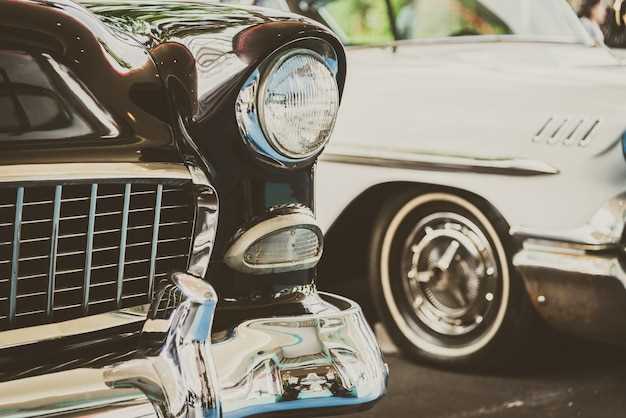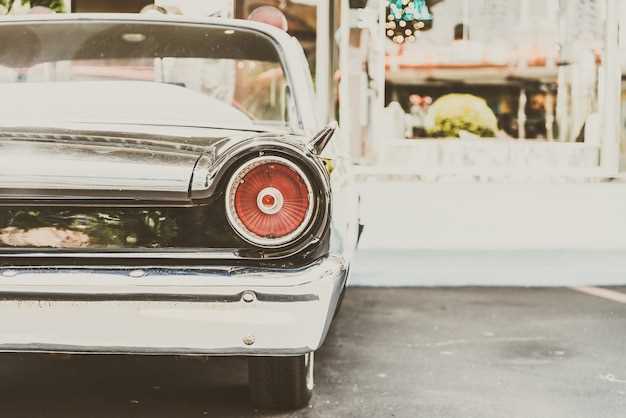Are Classic Cars Still a Good Investment?

Investing in classic cars has emerged as a popular avenue for both seasoned collectors and novice investors alike. The allure of vintage automobiles lies not just in their nostalgic appeal, but also in their potential to appreciate in value over time. However, entering the classic car market requires careful consideration and understanding of various factors that can influence investment outcomes.
First and foremost, the value of a classic car is determined by multiple elements, including rarity, condition, and historical significance. Certain models and brands have demonstrated record-breaking appreciation, making them attractive options for investment. However, it’s crucial to conduct thorough research to identify which cars are likely to yield the best returns in the future.
Additionally, the classic car market can be volatile. Economic fluctuations, changing consumer preferences, and even advancements in automotive technology can impact demand and, consequently, value. Investors must be aware of market trends and seek expert advice to navigate this complex landscape. Investing in classic cars is not just about passion; it is also about making informed decisions to safeguard and optimize one’s investment.
Classic Cars as an Investment: What to Consider
Investing in classic cars can be an intriguing opportunity for collectors and enthusiasts alike. However, it requires careful consideration of several key factors to maximize potential returns.
- Market Research: Understand the current market trends for classic cars. Certain models appreciate faster than others, influenced by brand reputation, production numbers, and historical significance.
- Condition and Restoration: Assess the condition of the vehicle. A well-maintained classic car or one with professional restoration often holds more value than a neglected model. Documenting restoration work can enhance investment appeal.
- Rarity: Look for limited edition models or those with unique features. Rarity often correlates with increased demand and value over time.
- Documentation: Maintain comprehensive records, including title history, service history, and authenticity certificates. Provenance can significantly impact the investment value.
- Storage and Maintenance: Consider the costs related to storage and maintenance. Proper storage conditions protect the vehicle’s integrity, while regular maintenance helps preserve its value.
- Insurance: Obtain specialized classic car insurance. Standard auto policies may not provide adequate coverage for unique or valuable vehicles.
When considering classic cars as an investment, it’s crucial to adopt a long-term perspective. While some cars may appreciate quickly, others may take years to increase in value. Additionally, potential investors should factor in their personal passion for vehicles, as emotional attachment can influence purchasing decisions.
Evaluating the Long-Term Value of Classic Cars

When considering classic cars as a potential investment, it’s essential to evaluate their long-term value. Factors such as brand reputation, historical significance, and market demand play crucial roles in determining a classic car’s future worth. Renowned brands, like Ferrari or Porsche, often retain their value better than lesser-known manufacturers.
Another critical aspect is the car’s condition and originality. Classic cars that have been well-preserved or restored using original parts typically command higher prices. Buyers often seek vehicles with verified documentation, which can significantly enhance their value. Thus, maintaining proper records and providing evidence of a car’s history is paramount for investors.
Rarity is also a substantial influence on value. Limited production models or those with unique features are more likely to appreciate over time. As enthusiasts seek out rare finds, the demand for these vehicles can drive prices upward, making them a compelling investment option.
The classic car market can be unpredictable; however, investing in vehicles with legendary status or legendary performance ensures a better chance of appreciating value. Over time, classic cars can become not only cherished possessions but also valuable assets that offer financial returns.
In conclusion, evaluating the long-term value of classic cars requires thorough research and an understanding of market trends. By analyzing factors such as brand, condition, rarity, and historical significance, investors can make informed decisions that will enhance their collection and financial portfolio.
Key Factors Affecting Market Demand and Resale Potential

When considering classic cars as an investment, understanding the key factors that influence market demand and resale potential is crucial. These factors can significantly affect the value of your investment over time.
One major factor is the car’s rarity. Limited production models or those with unique features often attract collectors and enthusiasts, driving up demand. Vehicles that hold historical significance or are associated with notable events or personalities also tend to retain or increase their value.
Condition plays a vital role in determining resale potential. Classic cars that are well-maintained, have original parts, and show minimal signs of wear will generally be more appealing to buyers. Restoration quality is equally important; a poorly executed restoration can diminish a car’s value, while a meticulous restoration can enhance it dramatically.
Market trends influence the investment viability of classic cars. Shifts in consumer preferences, such as a growing interest in electric vehicles, can impact demand for certain classic models. Keeping an eye on the market can help investors identify which vehicles are gaining traction and may offer better returns.
The provenance of a classic car, including its ownership history and documentation, can significantly affect its desirability. Cars with a well-documented history, including awards or recognition, are often more sought after, making them better investments.
Lastly, economic factors can affect overall market conditions for classic cars. During economic downturns, luxury items like classic cars may see reduced demand, while a thriving economy can increase buyers’ willingness to invest in such vehicles. Keeping an eye on economic indicators can provide insight into the right timing for buying or selling your classic car investment.
Practical Steps for Researching and Acquiring Classic Vehicles
Investing in classic vehicles requires thorough research and careful planning. Begin by defining your budget, including purchase price, restoration costs, and ongoing maintenance. Determine what type of classic car aligns with your interests and investment goals. Popular categories include muscle cars, vintage sports cars, and classic luxury vehicles.
Next, explore reputable sources for classic car information. Online forums, enthusiast clubs, and auction houses can provide insights into market trends and vehicle history. Utilize resources like classic car magazines and websites to read reviews and articles about specific models and their investment potential.
Once you have identified the desired make and model, research its market value. Check auction results, classified ads, and valuation guides to understand current pricing trends. Look for examples of similar vehicles and assess their condition, mileage, and rarity, as these factors significantly impact value.
When considering a purchase, inspect the vehicle thoroughly. If possible, obtain a professional appraisal or have a trusted mechanic evaluate the car’s condition. Pay attention to details such as rust, engine performance, and original parts, as these attributes can affect the car’s overall investment worth.
Consider establishing a strong network within the classic car community. Engage with fellow enthusiasts through clubs and events, as they can provide valuable advice and potential leads on vehicles for sale. Building relationships can also enhance your knowledge and appreciation of classic cars.
Finally, be prepared for negotiations. Understanding the value and condition of the car gives you leverage in the buying process. Strive for a fair price that reflects the vehicle’s condition and market demand. Remember, a well-researched purchase not only enhances the joy of owning a classic vehicle but also solidifies its potential as an investment.



